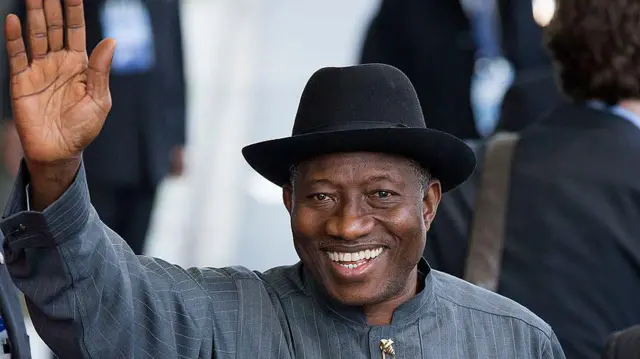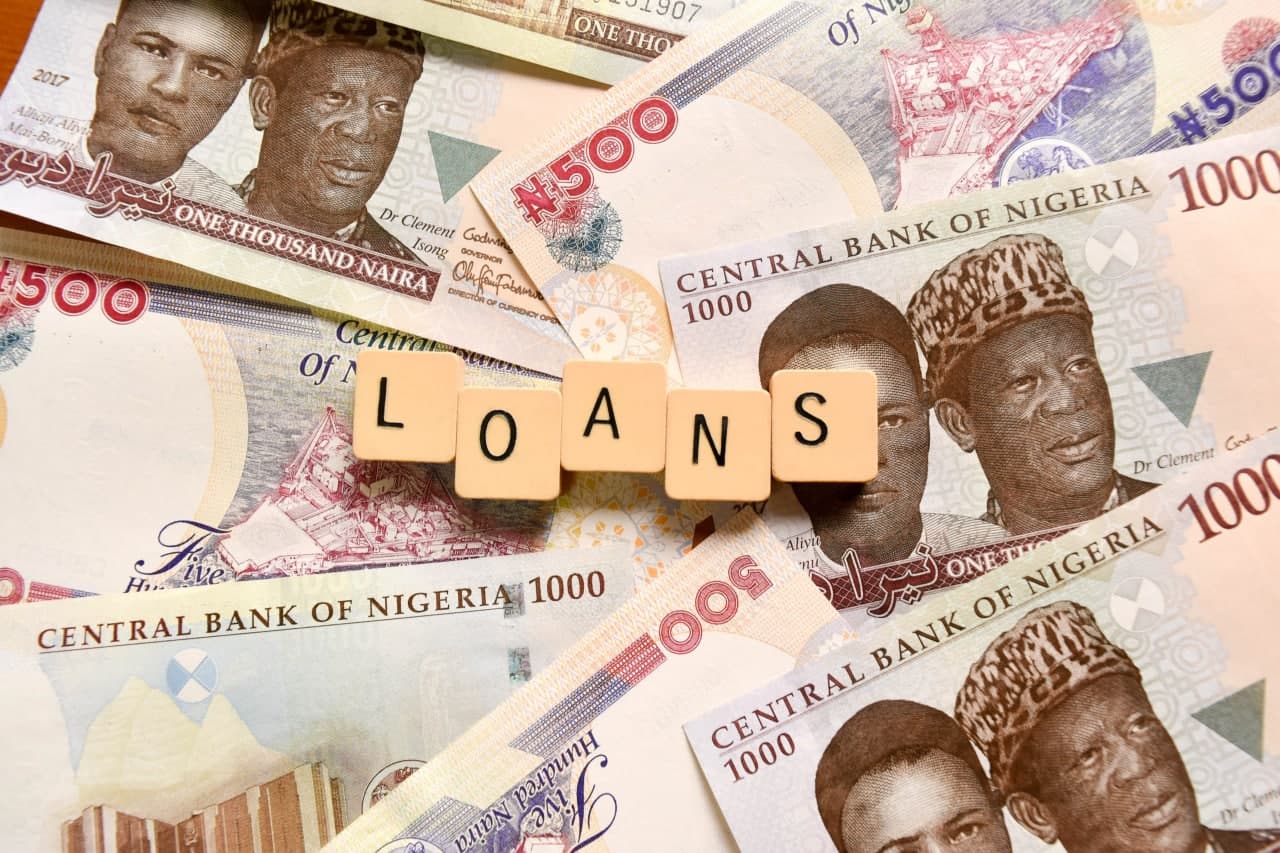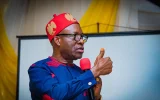It was an inexcusable flop, given the rich mind mine in the APC operations. The speech was supposed to bear an agenda for arresting Nigeria’s free fall.
The main interest in President Muhammadu Buhari’s inauguration was bound to be his speech. What would he say of his mission? What would he do with the office he has had to seek for four times? What guardian star philosophy would he follow?
Buhari delivered a decidedly underwhelming speech; it skirted around the fundamental questions. It was a big downer to many Nigerians who had fueled their generators (in this period of Nigeria’s equivalent of an Egyptian Plague of Darkness) to watch his swearing -in. The stilted choreography of the military parade and the sight of Buhari trotting out the words of the oath of office of the President of the Federal Republic of Nigeria didn’t compensate for the flat speech.
Buhari’s inaugural fell short of the significance of the national leadership transfer event. Nothing in it conveyed the impression that it was hatched from reasonably long brooding. It appeared to have been scribbled for expediency: the occasion demanded that the new President read something aloud to the audience. The speech’s only merit would be that it might compete as one of the most pedestrian and prosaic speeches written and read for the inauguration of a head of state.
Every inaugural address is unique. The challenges of the country and the priority of the time determine its spirit and letter. But every inaugural address aspires to a standard of quality. It calls forth the future of the nation from its history. It awakes love for country. It locates the answers to the nation’s problem in the potential of her people to reach for a higher destiny.
Buhari’s inaugural falls short of that glory. The only reasonable way to explain its low grade was that it was probably calibrated to attain the profundity of the English essay of an average-performing sophomore!
It was an inexcusable flop, given the rich mind mine in the APC operations. The speech was supposed to bear an agenda for arresting Nigeria’s free fall. Not another recitation of Nigeria’s woes. Candidate Buhari had repeated that several times on the stump. On his inauguration, he owed the nation the declaration of the shape of the solutions he would pursue.
And that makes you wonder: Did anybody sound Buhari out and flesh out his ideas and ideals? Did Buhari insist on writing the speech himself? Was this the best draft? Was it the first and last draft? What could other discarded drafts have read like?
A good inaugural speech doesn’t necessarily translate into a successful tenure. And Nigeria’s problem certainly has less to do with speech making than taking actions that match. But the inaugural speech was Buhari’s prime opportunity to rally the Nigerian people, the largest audience he will ever face. He squandered the best chance he had to secure buy-in!
Buhari’s speech was a poor pitch. And it betrayed the laziness and mediocrity of those who authored it and mediocre standards of the ultimate authority who vetted it.
Buhari highlighted Nigeria’s biggest challenges: endemic corruption, the ‘’national shame’’ of lack of power supply’’ and youth unemployment. He assured that he still knew the main issues, as in the days of his campaigns. That’s the farthest he deigned to go. He didn’t reveal his program for tackling them. In effect, he gave us two options: guess what my administration would turn out or wait for the surprise.
On foreign policy, he promised to subject Nigeria to the direction of other external foreign policies. ‘’Nigeria under our administration’’ would be ‘’ready to play any leadership role that Africa expects of it’’. Nigeria’s foreign policy would take the form imposed on it by outsider demands. Nigeria would be available to run any errands the West African sub-region and wider African community may assign it.
President Buhari scored some point, though. He ordered the relocation of the command center of the Nigerian Army to Maiduguri, spatially close to the epicenter of the Boko Haram insurgency. It was a clearly commonsensical decision, a glaringly obvious option that should not have ordinarily eluded the consideration of the former commander-in-chief and his defense chiefs.
Moving the command center to the theatre of action would help separate the state of the war and its dynamics from one uncorroborated narration. In all probability, we would begin to see the progress of the war through other accounts, as separate from the monopoly rendition of the Army Spokesman.
Buhari climaxed his drab speech with a clichéd Shakespeare quotation, an appendage that was intended to raise its whole value. But it was a statement of self-assertion in the beginning of the speech that gave its entirety some luster. It was this determined paradoxical proclamation of a communal ownership and private possessiveness: ‘’I belong to everybody and I belong to nobody’’.
In the preceding paragraph, Buhari had said,’’ Having just a few minutes ago sworn on the Holy Book, I intend to keep my oath and serve as President to all Nigerians.’’
That inherently conflicted stretch of equivocation, ‘’ I belong to everybody and I belong to anybody’’ was a riddle, but an easily digestible one.
Today’s Nigeria is a country roughly evenly divided between Buhari haters and Buhari non-haters. A well resourced hate campaign was fiercely prosecuted to make Candidate Buhari a fetishistic figure of scorn. In adverts after adverts, in the newspapers and on the television, he was profiled as a bloodthirsty misanthrope, a restless megalomaniac seeking the aphrodisiac of power. He was the outrider of the Northern oligarchy, an implacable ‘’born to rule’’ crown prince.
In the North, he was de-marketed as the torchbearer of a clandestine crusade. He has picked pastors as his running mate twice. He is intent on planting the Bible in the sand dunes of the North. In the South, he was projected as the arrowhead of the conspiracy to Islamize Nigeria. He was also the patron saint of the Boko Haram death cult.
His political rival exhibited such disingenuous creativity as can only be born of malignant desperation. Language was often strained to describe the Buhari caricature.
Some characters, sworn to the profession of name-calling, were hired on a full time basis to denigrate this pet hate. The First Lady publicly declared him ‘’brain dead’’. A sitting Governor bought newspaper front pages and plastered them an obscene death wish.
When his rival’s campaigners brooked a thought for decency, they accused Buhari of forging his educational certificate. To make their false allegation gain truthiness, they got the Nigerian Army to compromise its own records and deny a soldier that served as its commander-in-chief. They labeled Buhari a dumb illiterate.
The hate campaign backfired and alienated many voters. But that percentage whose mental age makes them eternally impressionable and naïve still resent Buhari public persona. Buhari declares he would also be their President. He would be ‘’the President of all Nigerians’’.
Now to the other half of that riddle ‘’I don’t belong to anybody’’. It was a necessary reply to the popular concern that a binding fealty would result from Buhari’s indebtedness to his political sponsors. His remaking from an anathema into a viable Presidential contender was a vastly expensive enterprise: and he made the least contribution. He was only asked to lease himself to Tinubu. The call to Buhari was,’’ Follow me and I will make you…’’
And he was repackaged in nicer tinsel. He was dressed and made to walk around in strange apparels, like shepherd boy David in King Saul’s awkward amour. He was airbrushed, made photogenic and young. He was ferried in private jets. He was enrolled into the social media.
In the North, Buhari was only required to show up. He was already a cult figure. He didn’t need to plead for votes. The people were already converts; they needed no proselytizing. And their numbers, in many cases, made his entry into his rally venue difficult.
When Buhari was declared winner, there was a camp celebration that highlighted the role of one individual as his kingmaker. And this person gratuitously lapped it up. He had made a President, after his likeness. And didn’t that entitle him – the biggest shareholder in this first ever opposition party Presidential win – to issue some dictation to his creation, President Buhari?
One of this godfather’s protégé, former Governor of Ekiti State, Kayode Fayemi, is currently taking a lot of media flak for daring to cultivate proximity with Buhari. Fayemi is being pilloried by the Tinubu operation for trying to gain a placement in Buhariworld without following the Jagaban route. Tinubu was supposed to assign people to positions in Buhari government.
It was important that Buhari declared his independence. It was very crucial to notify everybody that he was not beholden to any wealthy patron. He would be responsible for making the ultimate decisions because this was his own Presidency.
‘’I belong to nobody’’ means I am not the property of a religion or an ethnic group. I am not a puppet. I will be President. And the early warning should suffice to cure some people of their Kingmaker illusionary status.
Op-ed pieces and contributions are the opinions of the writers only and do not represent the opinions of Y!/YNaija.

















Some people will beg to differ. John Campbell see it differently:
Nigeria President Muhammadu Buhari’s Inauguration Address
by John Campbell
In Nigeria’s current circumstances, it is hard to imagine a betterinaugural address than the one President Buhari delivered on May 29. It strikes all the right notes. He accepted his new role as an international leader and thanked former president Goodluck Jonathan for his “statesmanship” in the transition, everyone involved in the electoral process, and Cameroon, Chad, and Niger for their part in the fight against Boko Haram. The speech was plain and devoid of national or personal self-congratulation and baroque rhetorical flourishes. It was also very short—only 1,909 words—but packed with substance.
On domestic issues, Buhari said there would be no “paying off old scores.” With the amnesty program in the Niger Delta, which disarms and rehabilitates militants, ending in December, Buhari emphasized that the federal government “intends to invest heavily in the projects and programs currently in place.” He also promised true federalism, with a revamping of the relationships between the executive, legislative, and judicial functions at the federal level, and between the federal, state, and local governments. And he promised to fight corruption.
The speech was also remarkable for its candor. On Nigeria’s notorious poor governance: after paying tribute to the heroes of Nigeria’s foundation, he said, “Some of their successors behaved like spoilt children breaking everything and bringing disorder to the house.” Or, “The judicial system needs reform to cleanse itself from its immediate past. The country now expects the judiciary to act with dispatch on all cases especially on corruption, serious financial crimes, or abuse of office.”
Buhari characterized Boko Haram as “a mindless, godless group who are as far away from Islam as one can think of.” His analysis of the immediate contributors to the rise of Boko Haram is cogent: “Boko Haram is a typical example of small fires causing large fires. An eccentric and unorthodox preacher [the founder of Boko Haram] with a tiny following was given posthumous fame and following by his extrajudicial murder at the hands of the police. Since then, through official bungling, negligence, complacency, or collusion, Boko Haram became a terrifying force taking tens of thousands of lives…”
Western friends of Nigeria will particularly welcome the specific steps Buhari announced with respect to the struggle against Boko Haram: an overhaul of security service rules of engagement to “avoid human rights violations in operations. We shall improve operational and legal mechanisms so that disciplinary steps are taken against proven human rights violations by the armed forces.” He said he would move the headquarters of government efforts against Boko Haram from Abuja to Maiduguri. On Boko Haram kidnapping, he said “…we cannot claim to have defeated Boko Haram without rescuing the Chibok girls and all other innocent persons held hostage by insurgents.”